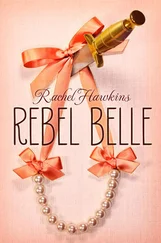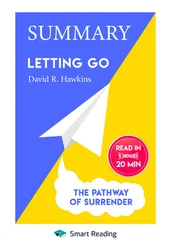Rachel Hawkins - Grim
Здесь есть возможность читать онлайн «Rachel Hawkins - Grim» весь текст электронной книги совершенно бесплатно (целиком полную версию без сокращений). В некоторых случаях можно слушать аудио, скачать через торрент в формате fb2 и присутствует краткое содержание. Год выпуска: 2013, Издательство: Harlequin, Жанр: Сказка, на английском языке. Описание произведения, (предисловие) а так же отзывы посетителей доступны на портале библиотеки ЛибКат.
- Название:Grim
- Автор:
- Издательство:Harlequin
- Жанр:
- Год:2013
- ISBN:нет данных
- Рейтинг книги:3 / 5. Голосов: 1
-
Избранное:Добавить в избранное
- Отзывы:
-
Ваша оценка:
- 60
- 1
- 2
- 3
- 4
- 5
Grim: краткое содержание, описание и аннотация
Предлагаем к чтению аннотацию, описание, краткое содержание или предисловие (зависит от того, что написал сам автор книги «Grim»). Если вы не нашли необходимую информацию о книге — напишите в комментариях, мы постараемся отыскать её.
Grim — читать онлайн бесплатно полную книгу (весь текст) целиком
Ниже представлен текст книги, разбитый по страницам. Система сохранения места последней прочитанной страницы, позволяет с удобством читать онлайн бесплатно книгу «Grim», без необходимости каждый раз заново искать на чём Вы остановились. Поставьте закладку, и сможете в любой момент перейти на страницу, на которой закончили чтение.
Интервал:
Закладка:
“Thank you,” Rowan said. He obviously considered himself as much a part of this conversation as me and the professor. Robots never do that, either.
Yet I knew just by the way he looked at me that he thought I was something special, so he couldn’t be human, either. Humans knew better.
How do I describe the next few weeks?
In some ways it was like spending time with a very small child. Everything was new to Rowan—everything—and he could ask questions for hours on end.
“Why do we never go outside?” he said on one of those early days as we walked the corridors of the complex.
“There’s a UV-radiation advisory. It wouldn’t bother you, but it would give me a sunburn pretty quickly. Those hurt like hell.”
Rowan would hesitate sometimes as he accessed preprogrammed information, draw those thick arched eyebrows of his together as he thought it over. And that was the uncanny thing—he didn’t just pull the info up, he thought about it. Came to his own conclusions. “If you’ve been sunburned, then you used to ignore the advisories. Or you did once.”
“I used to do it a lot,” I admitted. “I figured, you know, I’ve got dark skin, that’s going to protect me. And it does, kinda—instead of getting burned to a crisp in twenty minutes, it takes me about thirty minutes. But I got burned all the same.”
“Why did you do it, if you knew it was dangerous?”
“Because it’s beautiful, seeing the sky. Clouds by day, stars by night. There’s nothing more amazing than a sky full of stars. And the ground is soft and rolling, not flat and hard—soft against your feet, so you could run forever. Plus you don’t feel so closed in all the time. You get to feel free, you know?”
Which was a ridiculous thing to say to a robot who had never been outside even once. Who would never feel free.
But Rowan said, “Yes, I know,” and I believed him.
His curiosity went far beyond anything I’d ever seen in a robot—honestly, beyond what I’d seen in most human beings. He’d been preprogrammed with the raw facts about how the world worked, but he wanted to put those facts in context. Usually, the only context I had to draw on was my own life.
“You were raised in the crèche,” he said, “lived with your parents from age five to age twelve, then left for your apprenticeship.”
I nodded. He had all this information from my files, but wanted to talk it through with me all the same. “Exactly. Just like everybody else.”
“Yet you feel primary allegiance to your parents, even though you lived with them for only a brief period of your life.”
“Well, sure. They’re my mom and dad.”
Rowan hesitated, then said, “You love them.”
“And they love me.”
“How do you know?”
That stopped me short, and I had to think how to answer. We were hanging out in one of the cafeterias then; it was an off-hour, so not many people were around. Rowan didn’t wear a work coverall like most robots. Instead he had on the same jeans and sweater anybody else might wear during their free time. One girl in my apprentice track was getting a coffee, and I saw her shoot us a curious glance. She didn’t think I was spending time working with a robot prototype; she thought I was having lunch with a hot guy.
It did kind of feel like that.
“Kids and parents always love each other,” I said. “It’s hardwired into humans. Good thing, too, or otherwise we wouldn’t be able to stand each other.”
“Really?” Rowan looked so disappointed. “It’s only your programming?”
“No. I’m sorry. I was just—snarking, I guess.”
He must have understood that. “Will you tell me the real answer?”
Rowan deserved that much. So I thought about it for a second, and answered as honestly as I could. “My parents came to see me in the crèche, as often as they could. They cared about whether I was healthy, and happy, all of that. And the years I spent with them—those were the best. That’s how people are supposed to live, and down deep we all know it. Now I only get to talk to them on the computer, but they’re still in my life. They always ask about me. Sometimes I feel like they ask too much, but at least that proves I matter to them, you know? It’s important to feel like you matter to someone.”
“You matter to me,” Rowan said very simply. He didn’t seem to think that was any big deal—that it ought to be obvious.
“Well, thanks. You matter to me, too.” I told myself I said that only to be polite.
Another day I took him to the hydroponic gardens; I had a hunch he’d like them. Rowan kept touching every petal on every flower, brushing his long fingers against each stem, each leaf.
“Even the air smells different,” he said.
“It’s the higher oxygen content.”
“It smells alive.”
Which was exactly what I thought every time I came here on my own. But I just shrugged and laughed. “What you mean is, everywhere else in the center smells dead. Or fake, at least.”
“You’re doing it again.”
That caught me off guard. “Doing what?”
“Snarking,” Rowan said, and I had to laugh. But he remained serious. “I’ve noticed that you often make sarcastic comments to conceal deeper emotions. If you are being sarcastic about the hydroponic gardens, then you must feel very deeply about spending time here. What I don’t understand is why you wouldn’t want me to know.”
I shrugged. “People make fun of you for being too—sincere, I guess.”
“I wouldn’t do that.”
“No. You wouldn’t.”
Rowan smiled. “So you need not pretend with me. You can be your true self.”
If a regular guy had said that to me, I would’ve thought he was just trying to get in my pants. But I knew Rowan meant it. He never said anything he didn’t mean. Then again, he couldn’t; he was just a robot.
“You’re right,” I said. “I love the gardens. It’s quiet here, and there’s so much color. I get tired of everything being gray.”
“Me, too,” Rowan said. Probably he was just saying that to be polite. How could a robot long for something as meaningless, as useless, as color?
Eventually Professor Jafet wanted me to do some evaluation tests with Rowan. But instead of the usual tests—functioning speed, etc.—she had me give him psychology tests, the kind only humans take. At first I thought those would be a ridiculous waste of time; if you show a robot ink blots and ask him what he sees, he’s going to say “Ink blots.” The end.
Instead Rowan studied each card intently as I held them up. “Two dancers joining hands,” he said. “A robed monk seated for meditation. A phoenix unfolding its wings in the fire.”
It was all I could do to keep my hands from shaking. Not only was Rowan responding as a human, he was responding like one with—imagination. Vision. Someone who saw possibility everywhere, the chance of renewal and rebirth....
I managed to say, “How do you even know what a monk looks like? Or a phoenix?”
He blinked. “Still and moving images of virtually all human activity and mythology were preprogrammed into my matrix. Didn’t you help Dr. Jafet do that?”
“Yeah. I did. Sorry.” My astonishment had more to do with the fact that Rowan was capable of recognizing such things in mere swirls of ink.
Quickly I held up the last card. Most of the ink blots were monochromatic, but this one was multicolored. To my surprise, Rowan instantly smiled. “You.”
“Me what?”
“I see you.” He nodded at the card. “The blue loops at the top—that’s your hair. And the rest is you when you’re sort of tired at the end of the day, but you don’t want me to see. You’re leaning back in one of the big chairs, sort of...sprawled, but still graceful.” Rowan’s fingertips grazed over the card, and his gaze was soft. “These are the curves of your shoulders—see?—and then your arms...”
Читать дальшеИнтервал:
Закладка:
Похожие книги на «Grim»
Представляем Вашему вниманию похожие книги на «Grim» списком для выбора. Мы отобрали схожую по названию и смыслу литературу в надежде предоставить читателям больше вариантов отыскать новые, интересные, ещё непрочитанные произведения.
Обсуждение, отзывы о книге «Grim» и просто собственные мнения читателей. Оставьте ваши комментарии, напишите, что Вы думаете о произведении, его смысле или главных героях. Укажите что конкретно понравилось, а что нет, и почему Вы так считаете.












